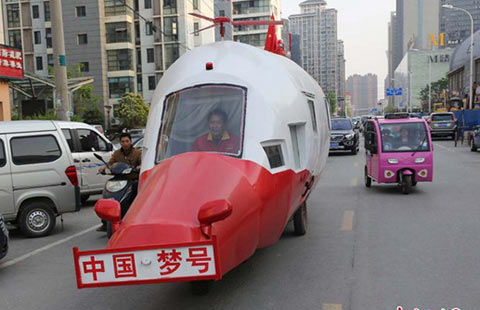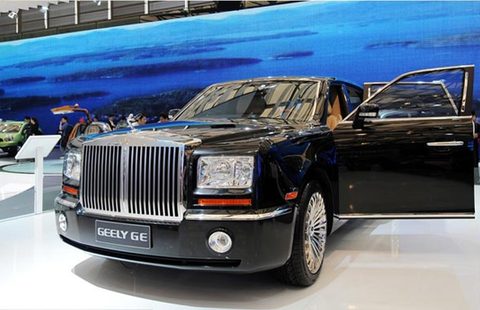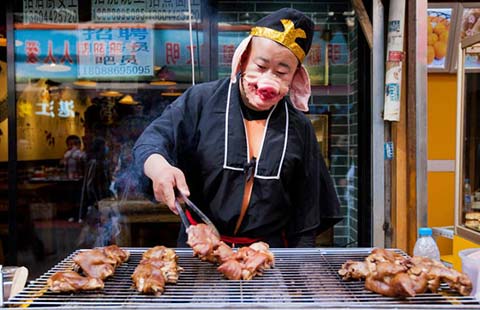China's 'Hollywood' shines in business
By Huang Ying in Hengdian, Zhejiang (China Daily) Updated: 2012-05-28 09:26Behind the tourism boom is an on-going conflict between visitors and film and TV crews, said Zhu of the administration committee at Hengdian Chinese Film Industrial Park, the first national film industrial area approved by the State Administration of Radio, Film and Television.
"It is impossible to remove the conflict completely but we could try to mitigate it by adding more indoor studios and developing more performances," Zhu said.
Hengdian plans to add nine indoor studios costing 200 million yuan. The project started in July 2010. So far four of them have been completed.
It also plans to recreate the Shanghai Bund as one of its scenic spots. Currently, most scenes in movie and TV dramas featuring the Shanghai Bund are being shot in Shanghai Movie Amusement Park in Chedun township, Shanghai.
"This project has been under way for a couple of years. Currently the architecture design drawing is under consultation," Zeng said.
In addition to increasing the number of indoor studios and enriching the shooting scenery, the company will focus on developing performances for tourists, Zeng said.
Hotel services have also experienced rapid growth in recent years, promoted by the development of the travel industry.
"In September 2008, the accommodation rate at Tourism Hotel was just 30 percent. Now the figure has risen to more than 75 percent on average," said Zhou Yingping, deputy general manager of Hengdian World Studios Hotel Management Co, who used to work as the general manager of the hotel.
"Tourist groups have to make a reservation a month in advance in the peak season. Individual tourists have to book a room a week before they check in," said Zhang Xuefang, general manager of Dongyang Hengdian World Studios Tourism Building Co, the owner of Tourism Hotel.
As well as tourists, crews are also the main clients of hotels. Zhou said that there are at present about 40 crews shooting in the studios and there have been 50 at the same time.
Currently, the hotel accommodation capacity of Hengdian contributes more than half that of Dongyang, its governing county-level city, with the total number of beds exceeding 15,000. However, its potential remains big because, during the peak travel season, some tourists stay at hotels within an hour's drive from Hengdian.
"While arranging the accommodation, we will always give crews priority in checking into local hotels," said Zhang.
Tourists might spend the night in Yiwu or Yongkang, both of which are governed by Jinhua city in Zhejiang province, she said.
Hengdian World Studios Co has already launched a plan to build five-star hotels. At present the highest-level hotels in the town are four-star.
"The construction is expected to begin next year but we have already started the staff training program for the upcoming five-star hotels. Staff selected to join the program will have to spend half a year at the Tourism College of Zhejiang and half a year in Shanghai five-star hotels as interns," Zeng said.
As the largest base in China for the rental of film and TV production equipment and film props and the hiring of extras, Hengdian exports a variety of resources related to the industry to other areas where filming is being undertaken.
For example, 80 percent of the vehicles used in filming at Zhejiang Xiangshan Movie & TV Town, one of the country's 10 largest studios, came from Hengdian.
In Beijing-based China (Huairou) Movie & TV Industry Zone, about half of the crew staff are from Hengdian, including scene designers and carpenters, Zhu from the industrial park said.
Deng Li'ai, a Hengdian-based costume designer and producer with more than 10 years of experience in the industry, said that most orders she receives at Hengdian are small ones such as 20 to 30 suits, although she did receive a large order of 1,000 suits last year.
Many film and TV drama crews have chosen their costume suppliers in big cities such as Beijing and Shanghai before they come to Hengdian studios. Additional orders they make here are intended to deal with unexpected new situations, Deng said. "This explains why the orders made here are always small ones."
Deng opened her own costume workshop in 2010, after 10 years working with crews as a costume designer and producer. Her business earned 700,000 yuan in revenues last year, of which 300,000 was profit. The main clients last year were crews, including 15 costume drama crews. This year the orders from crews fell back sharply because of a limit on costume drama production imposed by the State Administration of Radio, Film and Television.
"So far, orders from crews are only valued at 20,000 yuan compared with 1 million yuan's worth of orders from photo studios in Yiwu," said Deng.
As a local resident in Hengdian, Deng still thinks positively about the market's potential and believes that there will be more commercial opportunities in the future.
huangying@chinadaily.com.cn
- Riskiest bonds flagged by Haitong after Tianwei default
- Investment by Hormel to grow as meat demand rises
- Bombardier facility to take off in Tianjin
- Chinese banks must cut coal lending, shift to cleaner businesses
- Direct flight to link China's Shenyang, Moscow
- China, Cambodia pledge closer cooperation
- China's ZTE launches 4G terminal devices in Ethiopia
- China's airlines report recovering profitability

















